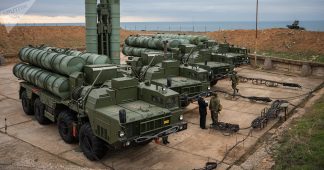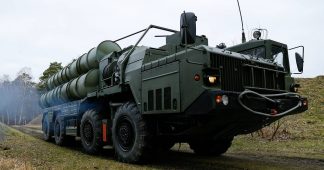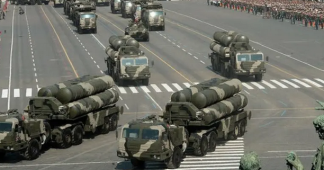3.07.2020
Republican US Senator John Thune on 30 June suggested purchasing and removing the Turkish-owned Russian-built S-400s from Ankara, in a bid to break a deadlock over weapons which Washington claims are incompatible with NATO security standards and might compromise operations of the new fifth-generation F-35 fighter jets.
Retired Turkish Air Force Major General Beyazit Karatas commented on a GOP proposal to purchase Russian S-400 surface-to-air missile systems from Turkey, noting first that the implementation of such an initiative is impossible:
“I find it tragicomic that US senators introduce such amendments, even allowing the very idea”.
He stressed that there were binding articles under interstate agreements for the sale of weapons at this scale. “For international arms purchases, a state guarantee is provided”, he said.
Karatas pointed out that there is an “end-user certificate” and all parties must necessarily sign. Without the consent of the country of origin, you cannot sell the weapon to a third party because you are legally responsible. Official statements made by Turkey indicate that the S-400 agreement will be fully respected.
To clarify the issue, Karatas gave an example in the case of American military equipment procurement.
“Let’s assume this situation: we bought, say, Patriot systems, and then relations with the United States due to sanctions and the embargo went sharply and irreparably wrong. Can we sell Patriot to a third country and buy a better air defence system from them and sell the F-16 on top of that? The answer is “no”. The US will intervene immediately and accuse us of violating the agreement”, he said.
According to Karatas, the major reason US senators have been so detached from current reality is that they consider themselves the leader of the world.
Tomorrow, the US will resort to the same practice again but on a different subject. The blackmailer will use his options to the last. What’s important here is what the pressure side will do”.
Karatas emphasised that the S-400 is an air defence missile system, not designed to be used as an offensive weapon. He added that it would be clearly used against an enemy that would threaten the security of Turkey.
“The system will not be targeted directly against NATO but against air threats from an attacking enemy, regardless of its belonging to the Alliance”, he clarified.
Karatas also stressed that, despite the US pressure, Turkey will not give up the S-400. According to him, the system is effectively operational. After the first stage of personnel training, the process of “completing combat training” will proceed, and training will continue uninterrupted at various levels throughout the operational cycle, as long as the S-400 is in Turkish army service.
“There is no turning back in the S-400 issue and there can be none. Undoubtedly, political and economic decisions affect our lives and will continue to do so. And in this sense, the implementation of the agreement signed between Turkey and Russia on the supply of the S-400 is of great importance in terms of ensuring Turkey’s security, maintaining its respect and confidence in the international arena and cooperation with neighbouring countries”, Karatas said.
Earlier, US Senate Majority Whip John Thune introduced legislation that would allow the United States to buy Turkey’s Russian-made S-400 defence system, the purchase of which by Ankara in 2019 caused Washington to expel the nation from its F-35 jet fighter program and threaten to impose sanctions on the country. According to the White House, S-400 systems may allegedly compromise F-35 jet operations and fail to meet NATO standards. Ankara harshly condemned the US move, calling it illegal and unsubstantiated, and reminding that Turkey had funded the jets costly development.











